IN FULL PARTNERSHIP

Thirty Years of Women’s Advancement at the United Nations and Beyond
A Collection of Statements by the Bahá’í International Community on the Subject of Gender Equality

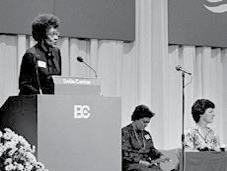



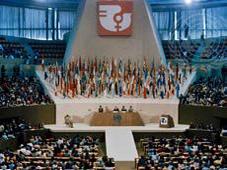
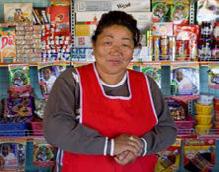


Thirty Years of Women’s Advancement at the United Nations and Beyond
A Collection of Statements by the Bahá’í International Community on the Subject of Gender Equality







A COLLECTION OF STATEMENTS BY THE BAHÁ’Í INTERNATIONAL COMMUNITY ON THE SUBJECT OF GENDER EQUALITY
Copyright © 2025 by Bahá’í International Community
See full copyright notice at https://www.bic.org/general/copyright-notice
The Bahá’í community’s commitment to gender equality and justice is rooted in its conviction that all human beings “have been created to carry forward an ever-advancing civilization.”1 Each person is likened in the Bahá’í writings to “a mine rich in gems of inestimable value”—treasures that require intentional and concerted effort to be revealed and directed toward the benefit of all. Gender equality is not only a goal which humanity aspires to achieve, but a necessary condition for peace and prosperity. Failure to recognize that women and men are equal ultimately impedes the material, social, and spiritual flourishing of every individual.
The equality of women and men is a core tenet of the Bahá’í Faith, and one which guides Bahá’ís in all facets of human life. In over 100,000 Bahá’í communities around the world, new social norms and institutional structures are emerging. These norms and structures are characterized by women and men striving shoulder to shoulder to foster relationships rooted in the dignity of every human being and a sense of shared endeavor. In the international arena, the Bahá’í International Community (BIC) has participated in consultations about gender equality since the establishment of the United Nations (UN), including all four UN World Conferences on Women2 and the UN Commission on the Status of Women (CSW). Over the years, the BIC has substantively contributed to CSW processes, actively advanced the Gender Equality Architecture Reform (GEAR) Campaign, and supported the work of the NGO Committee on the Status of Women. Alongside diverse partners, the BIC remains committed to being at the forefront of discussions to strengthen CSW as well as other efforts to advance the status of women across the UN system.
Three decades after the historic adoption of the Beijing Declaration and Platform for Action—an unprecedented global agenda for women’s and girls’ rights—the current moment invites the international community to reckon with enduring challenges and to recommit to a shared narrative of the world we are building together. On one hand, the pursuit of gender equality is being met with aggressive backlash. Political polarization, rising authoritarianism, entrenched patriarchal attitudes, and the reassertion of harmful norms, under the guise of cultural or ideological preservation, pose formidable obstacles to progress. On the other hand, the combined efforts of individuals, social movements, and organizations have led to significant advancements on many fronts.
In this connection, for the first time, the BIC has gathered a selection of its statements—organized according to the 12 critical areas of concern of the Beijing Platform for Action, in addition to two thematic areas on the role of men and boys and intersections between faith and feminism—on themes related to gender equality over the past 30 years. The selections draw on the experience of thousands of communities in virtually every country and territory around the world, in which Bahá’ís, working alongside friends, co-workers, government officials, and like-minded organizations, are learning to give concrete expression to the principle of gender equality. In this growing body of experience, one can discern new attitudes, new patterns of thought and mutual support, and new institutional arrangements dedicated to the education, participation, and flourishing of women and girls alongside men and boys. Across a vast
1 Bahá’í holy writings
2 BIC representatives were present at all four UN World Conferences on Women: Mexico City in 1975, Copenhagen in 1980, Nairobi in 1985, and Beijing in 1995.
diversity of cultural and economic realities, one can see obstacles that have prevented women and girls from fully participating in the life of society beginning to give way to new patterns of community life characterized by justice, cohesion, and mutual support. The BIC invites the arbiters of international affairs to give earnest consideration to the approaches and outcomes detailed in this collection, which give a glimpse into the deep-rooted transformation that is possible when gender equality becomes a lived principle shaping the fabric of daily life.
The deep interdependence of humanity, now widely and emphatically affirmed by growing numbers around the world, has particular implications for the pursuit of gender equality. The human body provides a helpful analogy. Here, millions of cells, diverse in form and function, are governed by the principle of cooperation. Each cell, from inception, is linked to countless others through a continuous process of giving and receiving. Considered in this light, the quest for gender equality is not merely a social good to be achieved for half of humanity, just as it is not possible for one part of the human body to thrive apart from the whole. Rather, it is a central component of a flourishing society and a key prerequisite for lasting peace. Unequivocally, neglecting the needs and aspirations of women and girls— whether through the denial of resources, the dysfunction of institutional support, or the rejection of the dignity, rights, and experience of women—has caused immense suffering for millions of women and men alike. It is now more widely acknowledged that the lack of women’s participation has stalled peace processes and hindered economic, intellectual, social, and moral advancement. In the absence of their ability to fully and meaningfully influence or contribute to family, community, and public life, we have failed not only women and girls but also narrowed the horizon of what men and boys might become in a just and inclusive society.
In working its way toward gender equality, humanity is building something that has never existed before. How does gender equality find expression in individual mindsets and attitudes, as well as in interpersonal relationships and family dynamics? What are its many implications in the community or the workplace? What does it look like in governing institutions? Building on the foundation of human rights norms and institutional frameworks, the international community continues to grapple with the deeper challenge of effecting the attitudinal and cultural shifts needed for lasting change. Indeed, history has demonstrated that institutional reforms remain tenuous and vulnerable to shifts in power and priorities if they are not accompanied by more enduring transformation within individual mindsets and social norms.
Across diverse cultural and economic contexts, the worldwide Bahá’í community has observed that gender equality is more effectively advanced through processes where the capacity for collective learning is intentionally fostered. In this context, “learning” is understood as a deliberate process, scientific in nature—undertaken by individuals, communities, and institutions—that centers on action, reflection on experience, and consultation. Such a process—characterized by rigorous and systematic pursuit—is further shaped by qualities of humility, an openness to new perspectives, and the ability to adjust approaches in response to evolving conditions. Drawing on experience from thousands of such communities, the BIC’s statements strive to highlight the implications of principles such as equality and justice, together with the possibility of translating them into practice. Whether in the form of new patterns of relationships emerging among individuals and within families, communities, and institutions, or efforts to establish alternative structural arrangements or approaches to social transformation, such examples are yielding hopeful and tangible insights about the expression of gender equality in diverse parts of the world.
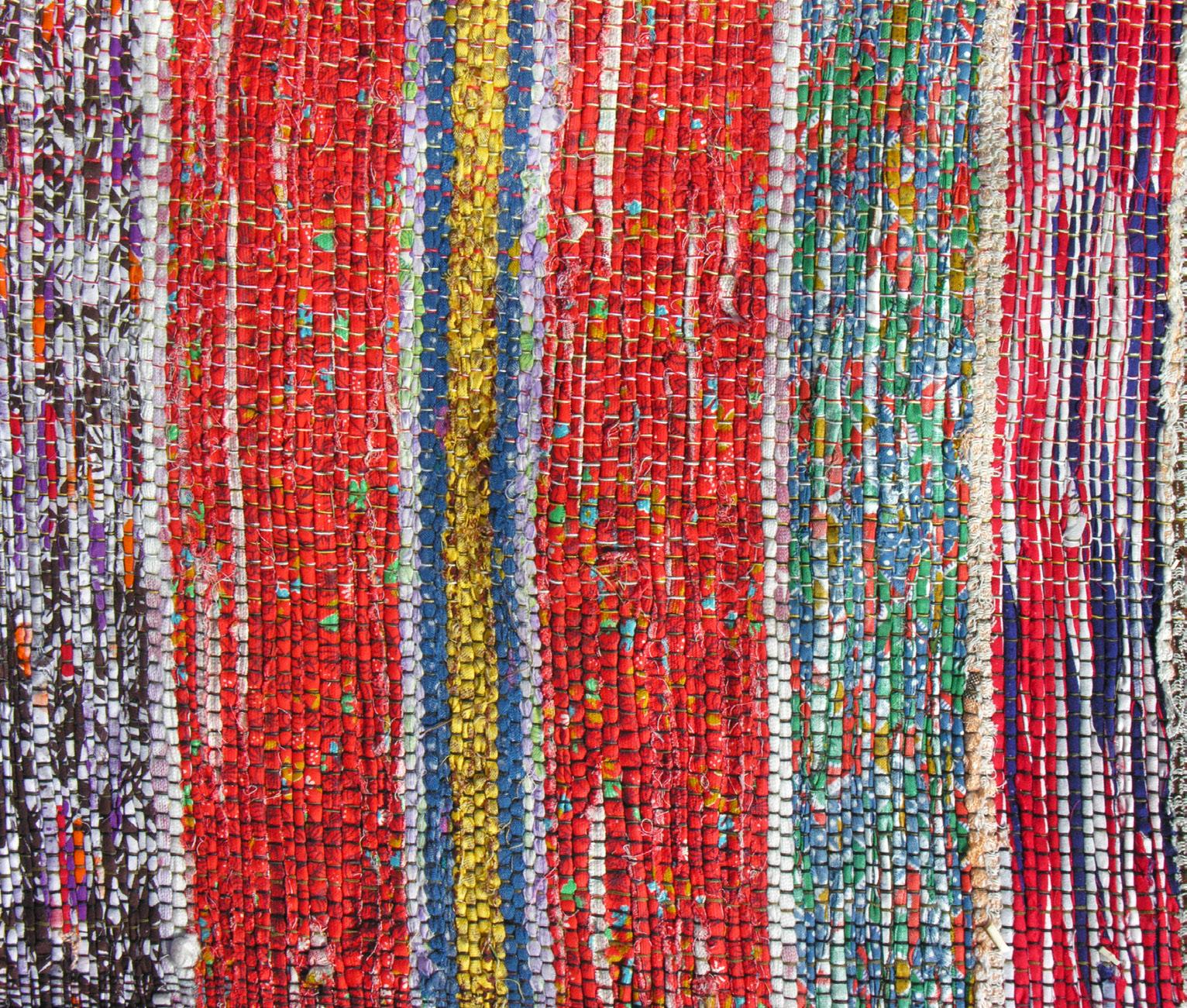
Bahá’ís recognize that the full participation of women in the life of society is essential to eradicating poverty and advancing collective prosperity. When societies across the world are plagued by extremes of wealth and poverty—symptoms of a social order characterized by inequity, self-interest, and fixation on profit-maximization—women and girls, who often lack equal access to productive resources and markets, are disproportionately harmed.
Yet women are not simply victims or under-resourced members of their communities. In both rural and urban settings, Bahá’ís are working with local institutions to improve food security through agricultural research projects and are implementing programs that equip individuals with the skills needed to initiate income-generating activities. Combining scientific knowledge with ethical principles, these programs promote material progress, while transforming prejudicial mindsets that have historically discriminated against women.

Be anxiously concerned with the needs of the age ye live in, and centre your deliberations on its exigencies and requirements.
— Bahá’í holy writings
New York—27 February 2012
The critical role of women in advancing agricultural and rural development, and in ensuring food security, has been widely acknowledged. Member States have committed to providing rural women with equal access to productive resources and to markets—recognizing their agency in rural and agricultural development. Despite progress made, rural women persist with low levels of income, sparse access to education and health services, limited job security as well as limited land and inheritance rights. Again and again, their needs as well as their contributions are relegated to the margins of policy development and budgetary considerations. In addition to the entrenched patterns of discrimination, unsustainable development practices, climate change, and violence against women intensify the burden placed on women and their families.
When viewed in the broader context, the situation of rural women is but one of the symptoms of a social order characterized by inequity, violence and insecurity. As such, the vision of women’s empowerment must go beyond making room for women to participate in society within the present social order, as this will not suffice to end the marginalization of rural populations and the entrenched patterns of discrimination against women. The empowerment of women requires profound changes in the minds and hearts of people and in the very structures of society. It begins with the understanding that the equality of women and men is more than a desired condition to be achieved for the common good; it is a dimension of human reality. In those aspects that make human beings human, women and men are fundamentally equal. The goal at hand, then, is not only the empowerment of women for the advancement of agriculture and rural life; it is the full engagement of women with men in the construction of a new social order. Though marginalized by present-day economic and development frameworks, women are neither victims nor simply under-resourced members of society. In fact, they represent the greatest source of untapped potential in the global effort to eradicate poverty and advance collective prosperity.
How, then, can we conceive of empowerment in a way that will begin to transform the current economic order and the condition of its rural women? We offer three considerations which address access to knowledge, the nature of full participation, and the importance of exploring diverse economic arrangements.
First, access to knowledge is the right of every human being. Yet, the patterns of knowledge generation and diffusion in the current world order divide the world into producers and users of knowledge. This has deep implications for the quality and legitimacy of education, technology, decision making, and governance. For example, despite the fact
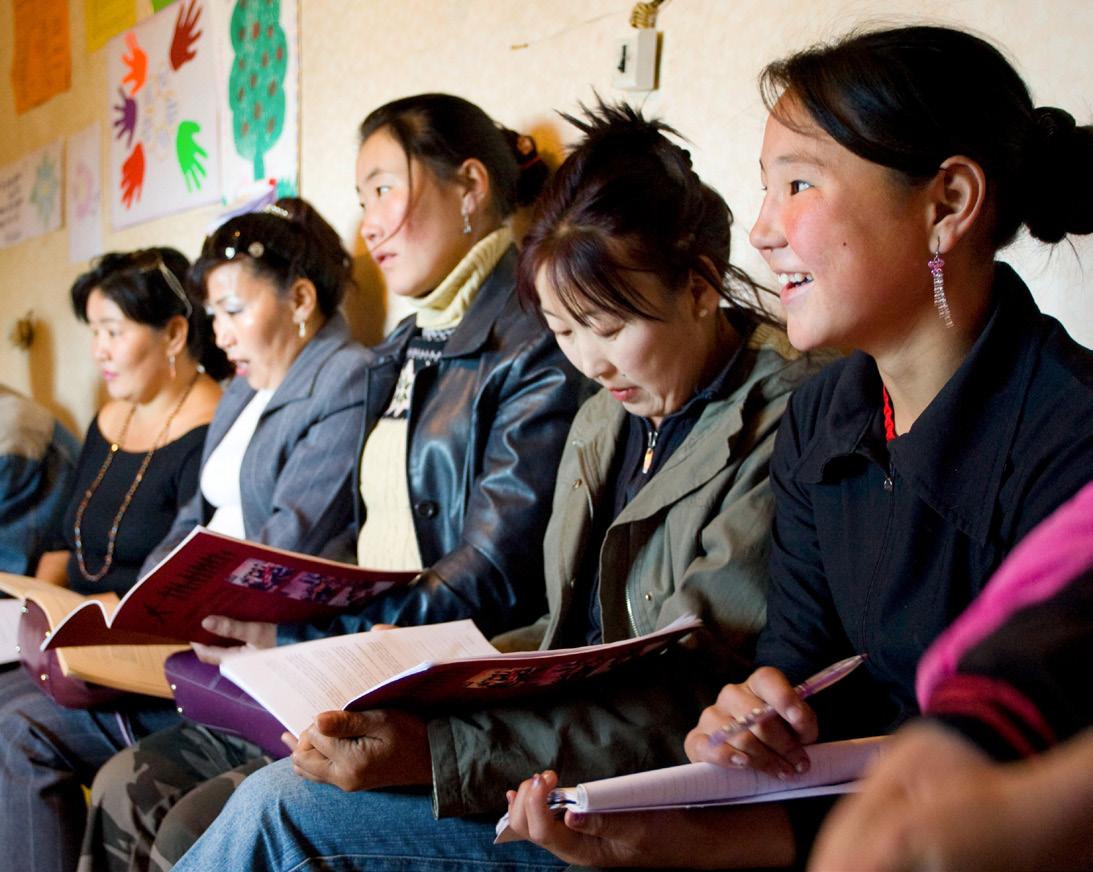
that most agricultural work in developing countries is carried out by low-income women, the primary shapers and users of agricultural technologies have been men. A key challenge is how to strengthen women’s capacities to identify technological needs, and to create and adapt technologies in light of social needs and resource constraints. Reforming the present flow of knowledge—from ‘North’ to ‘South’; from urban to rural; from men to women—will free development from narrowly conceived conceptions of ‘modernization.’
Second, access to knowledge promotes meaningful and informed participation in decision making at the family, community and higher levels of social administration. Thus, while social action may involve the provision of goods
Excerpt from a Statement of the Bahá’í International Community to the 63rd Session of the United Nations Commission for Social Development
New York—22 January 2025
The 1995 World Summit for Social Development reflected a powerful sense of optimism that the international community could come together to address the deepest needs and aspirations of the peoples of the world—to advance “human prosperity in the fullest sense of the term,” as described in a statement released by the Bahá’í International Community on that occasion.
The Summit’s outcome document highlighted the critical importance of social integration, alongside poverty eradication and productive employment, in fostering social development. In doing so, it drew attention to a key reality of the contemporary world: that the roots of numerous global challenges lie in how human beings view, value, respond to, and relate to one another. The Bahá’í International Community therefore welcomes the priority theme of this year’s Commission for Social Development, including its focus on “strengthening solidarity, social inclusion and social cohesion.”
"... the roots of numerous global challenges lie in how human beings view, value, respond to, and relate to one another.
Vital as it is, social inclusion has long been recognized as one of the less clearly defined elements of the social development agenda. An essential need before the international community, then, is to deepen understanding of the process by which the relationships underlying the social fabric can be strengthened—and how such strengthening can assist a community to measurably improve its material and economic circumstances.
Deteriorating conditions across the world today are, in many ways, a testament to the fact that the international community has yet to fully implement the commitments articulated in 1995. As the Second World Summit for Social Development approaches, the international community would therefore do well to look to localities where communities are becoming more resilient, safer, more cohesive, and healthier, to draw lessons about how such conditions can be fostered. Some thoughts on such a process of social transformation are offered below, drawing from experiences of Bahá’í communities around the world.
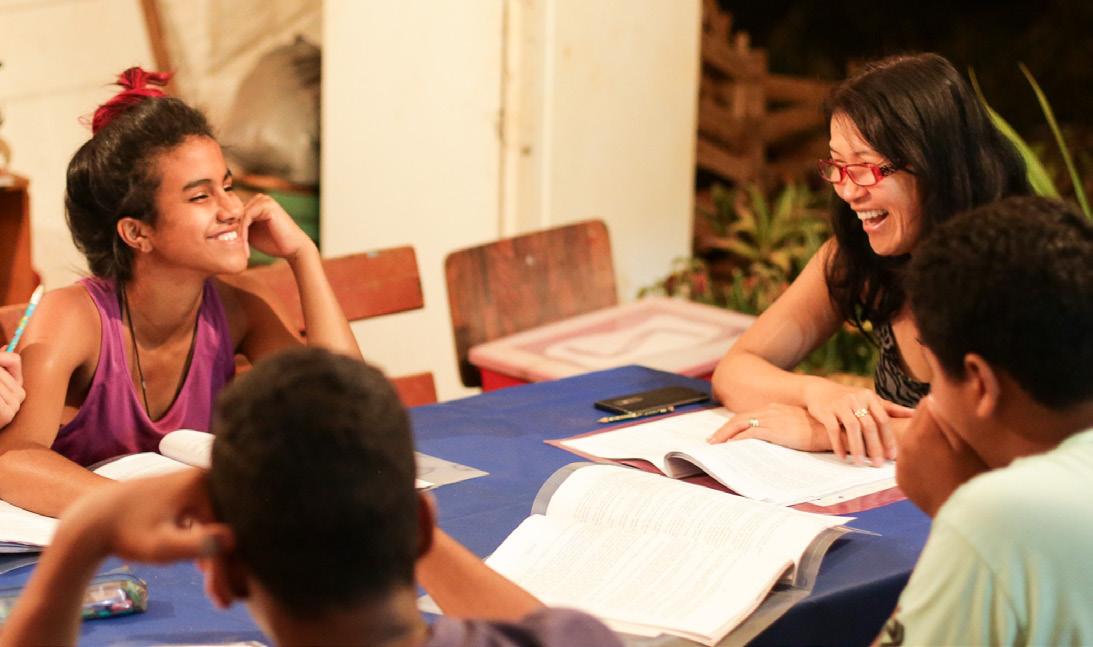
Communities can and do, through their own efforts, grow more cohesive and inclusive. But the types of societies we seek do not come about merely as a natural consequence of expanded access to material resources. Were this the case, the world’s wealthiest nations would be models of equality, justice, sustainability, and social cohesion. Rather, such qualities must, themselves, be actively nurtured and prioritized. This has been consistently made evident in the grassroots experiences of the worldwide Bahá’í community. Experience also bears out the assertion of the Copenhagen Declaration on Social Development, made some 30 years ago, that “our societies must respond more effectively to … material and spiritual needs.”
Communities can and do, through their own efforts, grow more cohesive and inclusive.
Bahá’í communities around the world are striving to learn about how these two needs—one more concrete, the other less tangible—can be addressed in tandem and in support of one another. The experience of one grassroots Bahá’í-inspired

Since its beginnings, the Bahá’í Faith has emphasized universal education—particularly prioritizing the training of girls—as vital to the prosperity of any people. Yet women and girls have historically lacked equal access to education and professional development.
As a response to this reality, Bahá’í communities worldwide offer, at every stage of life, educational initiatives that equip participants with the skills and qualities needed for their own personal development and for the promotion of the well-being of their societies, as well as the capacity for earning a livelihood. They have established hundreds of community-based and private schools, tutorial centers, and universities, and have implemented literacy and specialized training programs engaging hundreds of thousands of participants.
In addition to the goal of academic excellence, these efforts are equally directed toward raising entire generations who embrace the inherent dignity of every individual, and who strive to apply the principle of gender equality in all their affairs.

The sex distinction which exists in the human world is due to the lack of education for woman, who has been denied equal opportunity for development and advancement. Equality of the sexes will be established in proportion to the increased opportunities afforded woman in this age….
— Bahá’í holy writings
New York—22 February 2011
That the education and training of women and girls is critical to the well-being and advancement of communities and nations has been definitively established. The benefits of such education have traditionally been framed in terms of economic growth, but material well-being is but one of many conditions that impinge on women’s and girls’ participation in the shaping of society. Achieving any meaningful and sustainable increase in this participation will require a more fundamental dialogue about the nature of development, “modernity,” and the organization of knowledge-generating activity.
The human being is not only an economic and social creature but also a spiritual one with free will and a conscience that enables the search for meaning and for truth. Without the freedom to pursue this fundamentally human quest, neither dignity, nor justice, nor development—in its full sense—is possible. The Bahá’í International Community understands development to be a global enterprise of enabling all individuals to develop inherent capacities and spiritual qualities,1 and to contribute to the advancement of their community. Development is an enterprise that demands the efforts of both men and women working together to construct a social order characterized by justice, equity, reciprocity and collective prosperity. The systems of education, science, and technology, then, must be arranged in a way that reflects both the material and spiritual dimensions of the human being—permitting each person to play her or his rightful role in the betterment of society.
The transformation of human society requires both the transformation of the individual and the deliberate creation of new societal structures.
The division of the world into producers and users of knowledge is a deficient characteristic of the current world order— one with deep implications for the quality and legitimacy of education, science, and technology as well as governance and policy-making.
1 Among others, these include the capacity to draw out diverse views and insights, the capacity to consider new perspectives with an open mind, the capacity to see diversity as a source of strength, the capacity to diagnose the situation of a local community and work towards a desired state, the capacity to elevate discourse to the level of moral or spiritual principle, and the capacity for self-expression. Spiritual qualities include trustworthiness, justice, honesty, integrity, selflessness, and humility.
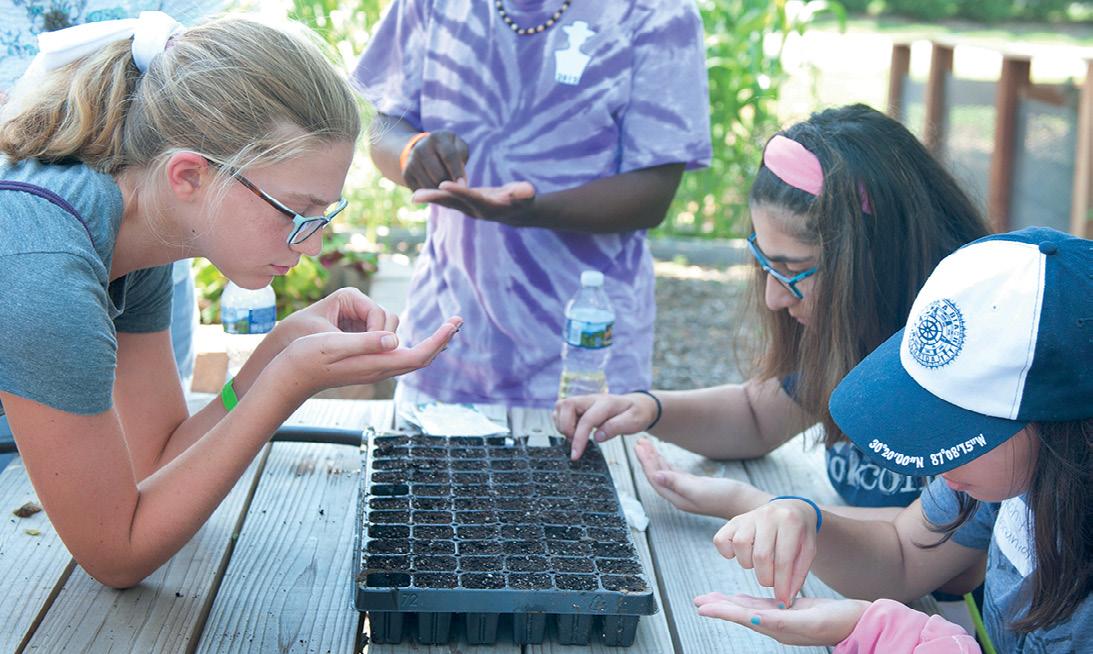
If most of humanity continues to be regarded as users of technology created elsewhere, it is unlikely that sustainable and meaningful development will take root.2
2 Much like the organization of scientific activity in any given culture, technological activity is strongly influenced by cultural, social, economic, and political forces. For example, despite the fact that most agricultural work in developing countries is carried out by low-income women, the primary users and shapers of agricultural technologies in these countries have been men. A key challenge then is how to create the conditions and strengthen women’s capacities to identify technological needs, and to create and adapt technologies in light of social needs and resource constraints. How can women move from being passive users of technologies developed elsewhere to active agents in shaping technologies that address the needs of their families and communities? How can the processes of technological development be shaped to better reflect the basic needs of the world’s people, particularly those marginalized by current market forces? Such questions challenge us to consider “modern technology” in a different light—as technology that addresses locally defined needs and takes into account the material, social, and spiritual prosperity of society as a whole.
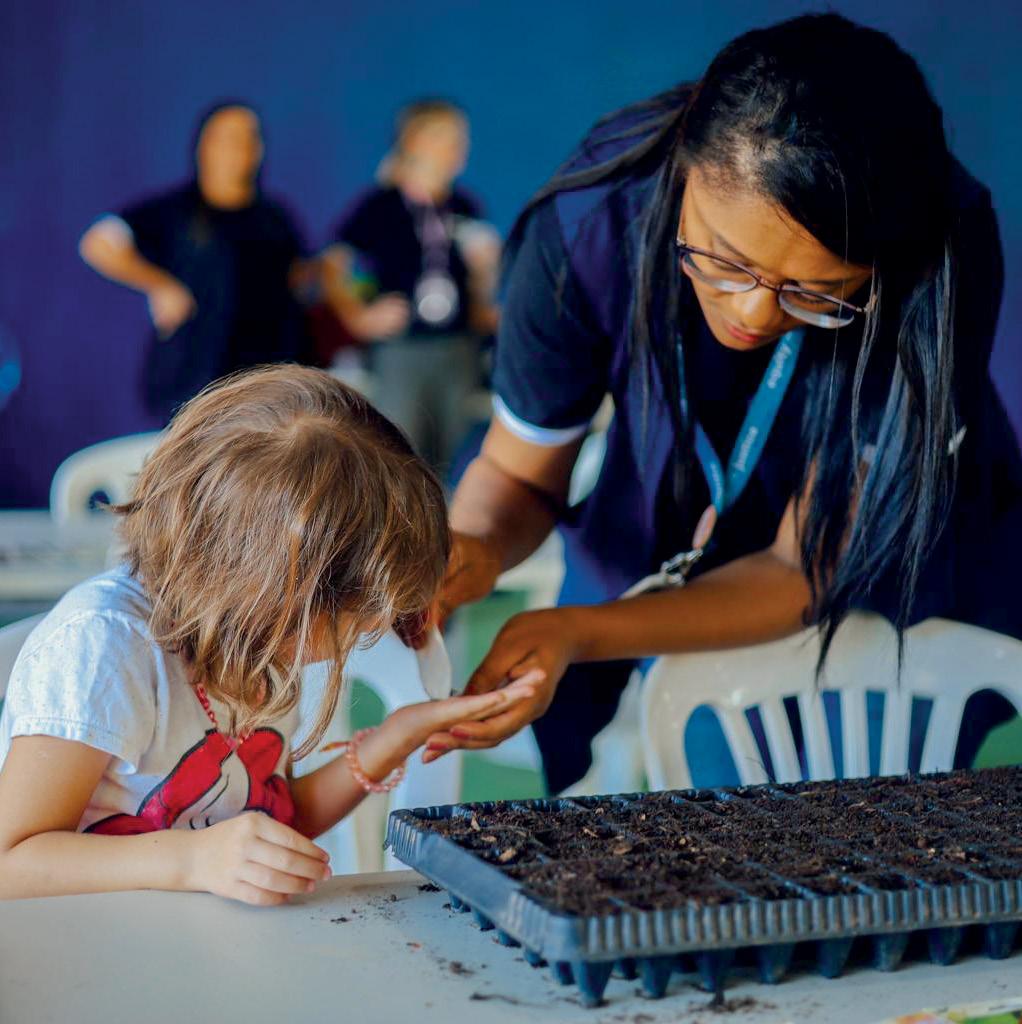
If access to knowledge is the right of every human being, participation in its generation, application and diffusion is a responsibility that each individual must shoulder and be empowered to shoulder.3 Reforming the present flow of knowledge—from “North to South;” from urban to rural; from men to women—will free development from narrowly conceived conceptions of “modernization.”
The experience of the worldwide Bahá’í community in the field of education and community building has shown that several concepts are particularly salient to guiding educational processes, including curriculum development, towards their ultimate goal, namely the transformation of individuals and their communities. These concepts include:
• Spiritual and moral education. In the realm of education, spiritual and moral development has often been divorced from intellectual and vocational training. This division has often sprung from high-minded intentions of tolerance and respect. Yet it must be acknowledged that all societies are characterized by political, economic, and cultural interests that promote corrosive patterns of thought and behavior among young people. Imparting the ability to reflect on and apply spiritual, moral, and ethical principles will therefore be indispensable to the task of building a prospering world civilization.
• Rethinking students, rethinking teachers. Every educational program rests on fundamental assumptions about human nature. Achieving sustainable development will therefore hinge on rethinking underlying conceptions of both teachers and students. A child—far from an empty vessel waiting to be filled—must be seen as “a mine rich in gems of inestimable value,” their treasures being revealed and developed for the benefit of mankind only through the agency of education. Similarly teachers—their laudable profession far too long overlooked and underappreciated—must likewise acknowledge that if they wish to effect a transformation on the level of character as well as intellect, they must, before all else, embody and model the principles they teach.
• Systematic learning and participation. The concept of participation also emerges in a new light. Effective participation requires a systematic process of learning within each community, in a way that enables the community to identify its strengths and its needs; to experiment with new ideas and methods, new technologies and processes; and ultimately, become the primary agents of their development. One of the first steps in establishing participatory development is to promote the engagement of an increasing number of individuals in processes of learning—characterized by action, reflection on action, and collective deliberation—in a constant effort to generate and apply knowledge to improve the conditions of community life.
3 The question of how scientific and technological activity is to be organized so as to permit people everywhere to participate in such activity—is a central challenge of development. Much of the world is without access to science, girls and women in particular. For the most part, “modern” scientific knowledge is generated in universities and specialized research centers of industrialized countries, increasingly owned by private corporations. While institutions at the frontiers of modern science play an invaluable role, the application of knowledge for the purpose of improving human well-being in an equitable manner, requires the participation of an ever greater diversity of minds. We need to consider: What are the implications of the predominance of male-led research in the sciences? Would women ask different questions? Would they fund different research? Given that 95% of the new science in the world is created in countries comprising only one-fifth of the world’s population, what are the implications of the absence of the large number of countries and cultures in the production of scientific research?